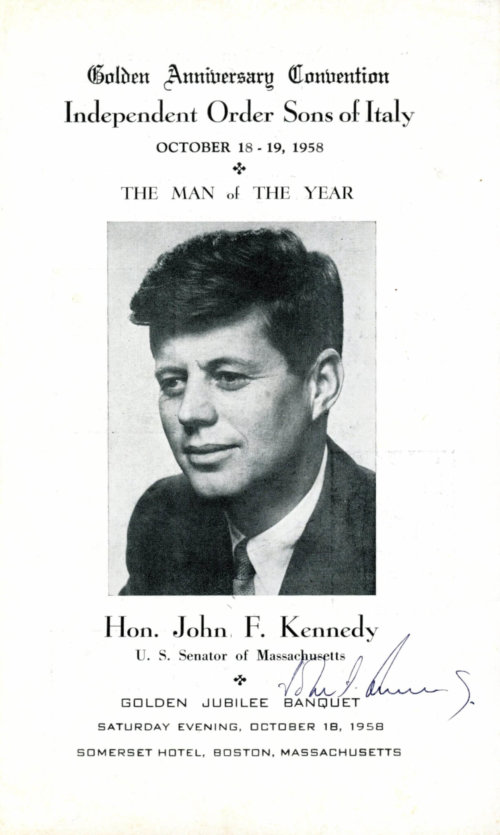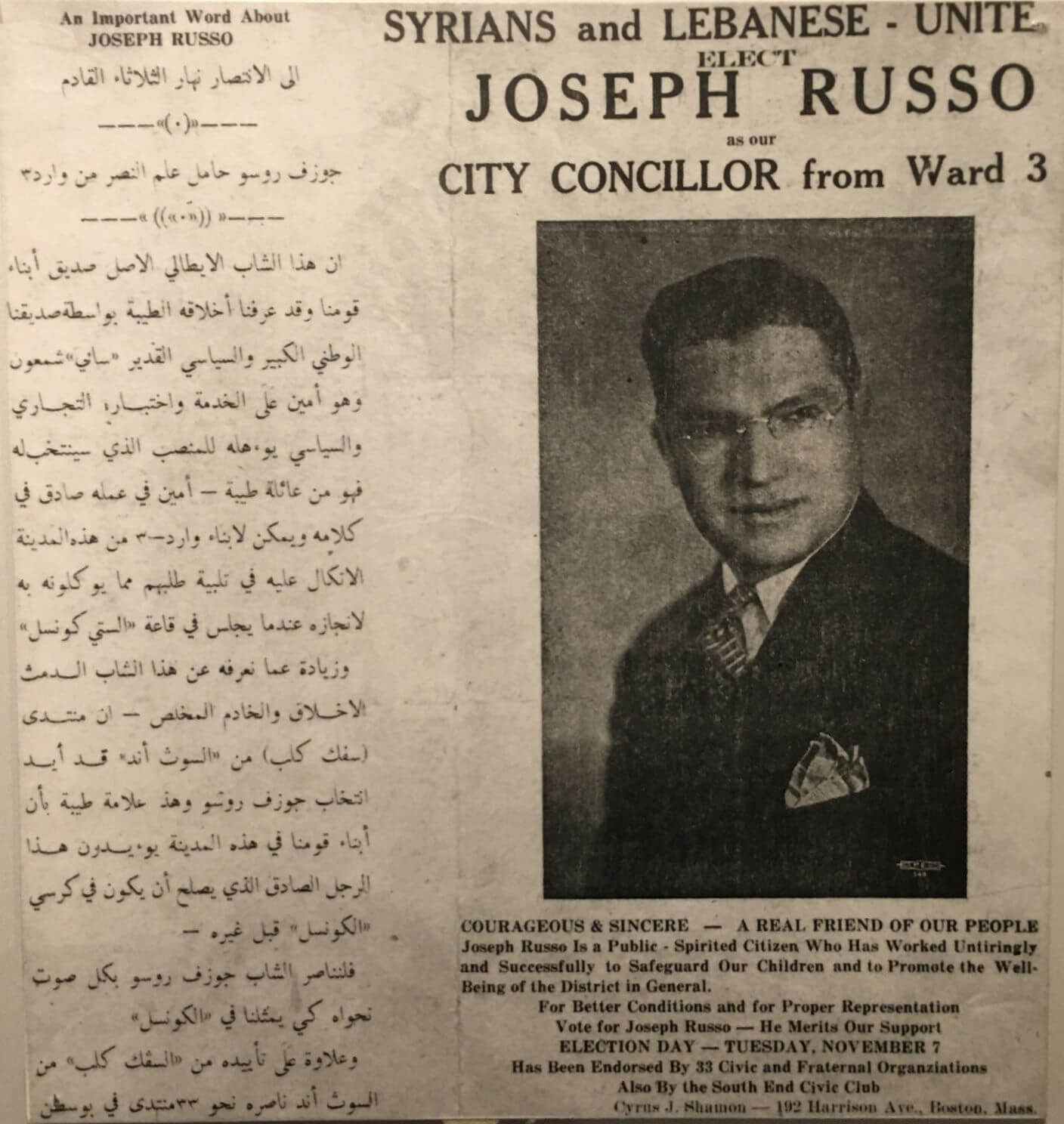JFK and the Two Joe Russos
In 1946, two of John F. Kennedy’s Democratic primary opponents for Massachusetts’ Eleventh Congressional District were from the West End, and both were named Joe Russo. One was a popular city councillor and undertaker, the other a janitor who entered the race under suspect circumstances.
When John F. Kennedy was elected to the US House of Representatives in 1946, he represented Massachusetts’ Eleventh District, which included the West End in addition to the North End, East Boston, Cambridge, Somerville, Brighton, and Charlestown. The West End Museum has covered JFK’s connection to the West End in detail. But less is known about JFK’s nine Democratic primary opponents in that congressional race, including Mike Neville, mayor of Cambridge and former Speaker of the House in Massachusetts. The Kennedy campaign focused largely on Cambridge in order to weaken Neville’s chance of carrying the district on Cambridge votes. But more significantly, two of Kennedy’s opponents were from the West End, and they were both named Joe Russo.
The first Joe Russo was an immigrant from Italy; his family left for Boston from Sicily when he was eight years old. Russo settled in the West End and founded the Joseph Russo Funeral Home, in Roslindale, in 1926. He was elected to the City Council in 1938, making him one of the first Italian immigrants to hold public office in Boston. Russo was elected to four terms before entering the congressional primary in 1946. He was very popular among locals, and the Kennedy campaign worried about his influence in the West End. Mark Dalton, a Cambridge attorney who helped manage the Kennedy campaign, remarked later that the Kennedys “must have been afraid with Joseph Russo on the ballot and the only Italian candidate on the ballot, there was a possibility that every Italian in the district would vote for Joe Russo.” Because JFK’s family wealth allowed his campaign to significantly out-spend his primary opponents, Russo put an advertisement in the East Boston Leader that read, “Congress seat for sale. No experience necessary. Applicant must live in New York or Florida. Only millionaires need apply.” Russo banked on his own experience in municipal government, compared to the politically inexperienced Kennedy, when he called JFK “a young squirt…just out of Harvard.” Although Kennedy did not hold prior office, he ran largely on his experience as a Navy veteran in World War 2, which Russo’s jab downplayed.
The second Joe Russo was a twenty-seven year old janitor from the West End. This Russo was a total unknown, and he was paid by another Kennedy campaign manager, Joseph Kane, to enter the race in order to confuse voters and split the votes going to city councillor Joe Russo. JFK may have been unaware of the move, but his father, Joe Kennedy, reportedly approved of the tactic after scouring the voter rolls to find another Joseph Russo. The first Russo saw right away what the Kennedy campaign had done, remarking that someone from the campaign had “seen fit to buy out a man who has the same name as mine…so the voters of this district will be confused and deceived.” The second Russo later admitted to the scheme, telling one reporter that after “some wise guys” asked him to enter the race in exchange for compensation, “they gave me favors. Whatever I wanted. I could of [sic] gone in the housing project if I wanted. If I wanted an apartment, I could have got the favor.” Although paying another Joe Russo to run for the seat was under-handed, it did not materially affect the outcome. Kennedy received far more votes than both Russos when he won the primary: 22,183 people voted for Kennedy, 5,661 people voted for Russo the city councillor, and only 773 people voted for Russo the janitor.
Despite losing to the future President of the United States in the race to represent the West End and the entire Eleventh District, former city councillor Joe Russo continued as a public servant when Mayor John Hynes appointed him to the Boston Election Commission in 1949. Russo became chair of the Commission in 1960 and resigned in 1964. He did not have hard feelings toward Kennedy about the primary in 1946, and actually ran into Kennedy at the Democratic National Convention in 1956. Russo recalled “telling this young fellow that I was glad a native-born American beat me out, as I didn’t have a chance to become president anyway, as I wasn’t born in this country. I was more or less kidding, you know.” Once JFK became president in 1960, Russo proudly told his children that “the president was a candidate against your father.”
Article by Adam Tomasi
Source: The West End Museum; Commonwealth Magazine; John T. Shaw, JFK in the Senate: Pathway to the Presidency (2013); Seth Ridinger, “John F. Kennedy: Public Perception and Campaign Strategy in 1946” (2013); Michael O’Brien, John F. Kennedy: A Biography (2006); Thomas J. Whalen, JFK and His Enemies: A Portrait of Power (2014); Brian Murphy and Donnacha Ó Beacháin, eds., From Whence I Came: The Kennedy Legacy, Ireland and America (2021); William F. Kelly oral history interview, 1964, JFK Library; John J. Droney oral history interview, 1964, JFK Library; ProQuest (Richard Ryan, “Joseph Russo, 80; City Councillor Who Lost Congressional Bid To JFK,” Boston Globe, February 19, 1986)









